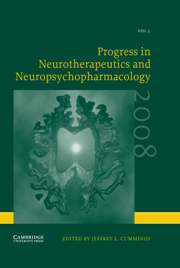No CrossRef data available.
Article contents
Tetrathiomolybdate versus Trientine in the Initial Treatment of Neurologic Wilson's Disease
Published online by Cambridge University Press: 08 June 2007
Extract
ABSTRACT
Background: The initial treatment of the neurologic presentation of Wilson's disease is problematic. Penicillamine, used for years on most patients, causes neurologic worsening in up to half of such patients, and half of those who worsen never recover. Zinc, ideal for maintenance therapy, is too slow for these acutely ill patients. We have developed tetrathiomolybdate (TM) for this type of patient, and it has worked well in open label studies. Trientine, another anticopper drug on the market approved for penicillamine intolerant patients, had not been tried in this type of patient. Here, we report on a double blind trial of TM versus trientine in the neurologically presenting Wilson's disease patient. Design and Methods: The study was a double blind design in which patients received either TM plus zinc, or trientine plus zinc, for 8 weeksThis study was originally published in reference 1. Patients were accepted if they presented with neurologic symptoms from Wilson's disease, if they had not been treated longer than 4 weeks with penicillamine or trientine. Patients were followed in the hospital for the 8 weeks of treatment with weekly semiquantitative neurologic and speech examinations, to evaluate possible neurologic worsening. They also had blood and urine studies done weekly. At discharge from hospital they were continued on zinc maintenance therapy, and returned at yearly intervals for 3 years for further evaluation. Results: Twenty-three patients were entered into the trientine arm and 6 reached criteria for neurologic deterioration, while 25 patients were entered into the TM arm and only 1 deteriorated (p < 0.05). One patient on trientine had an adverse event while 7 on TM had adverse events. All adverse events were mild. Four patients in the trientine arm died during follow-up, 3 having shown initial neurologic deterioration, 2 patients in the TM arm died. In those patients who did not deteriorate or die, neurologic and speech recovery over 3 years was good. Interpretation: TM is a superior choice to trientine for the initial therapy of neurologic Wilson's disease.
Keywords
- Type
- Research Article
- Information
- Progress in Neurotherapeutics and Neuropsychopharmacology , Volume 3 , Issue 1 , January 2008 , pp. 153 - 165
- Copyright
- © 2008 Cambridge University Press


